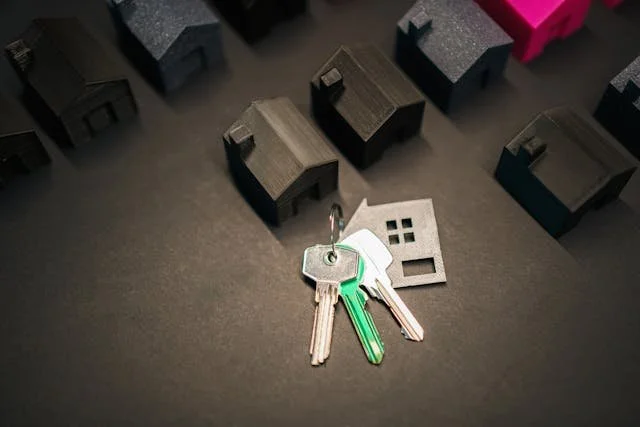Why Moving On From a Rejected Offer Can Be Harder Than You Expect
Why Moving On From a Rejected Offer Can Be Harder Than You Expect
You expected disappointment if your offer didn’t go through—but not this much. Moving on from a rejected offer doesn’t feel like just missing a transaction. It feels personal. You start questioning your timing, your judgment, and sometimes your future. For many buyers, especially first-time buyers, this emotional setback can come as a surprise. The problem isn’t just the rejection itself—it’s everything that comes with it.
Emotional Investment Begins Earlier Than You Think
Once you start picturing your life in a home, you’ve already made an emotional deposit. Even if you never lived there, the idea of it becomes real. You imagine decorating, cooking, and waking up to the light through the windows. That mental imagery has power. So, when the offer gets rejected, it’s not just a financial decision. It’s the loss of a future you already imagined—and that’s why moving on from a rejected offer can feel like grieving something personal.
What Buyers Expect Isn’t Always Realistic
Most buyers assume that offering the asking price—or more—should seal the deal. They also expect clear feedback or a second chance to counter. But real estate rarely follows that script. What buyers expect when moving in is often shaped by optimism and advice from well-meaning
The Silence Feels Louder Than the “No”
Some sellers never offer a response. You wait, checking your email or texts, hoping for movement. Days pass. Then your agent calls—someone else got it. The silence, followed by rejection, creates a kind of emotional whiplash. Uncertainty builds hope, and then that hope drops hard when the final answer comes.
Sealing the deal—every handshake carries hope, especially after the challenge of moving on from a rejected offer.
Use the Experience to Avoid Moving Mistakes
Instead of staying stuck in regret, use the experience as a teaching tool. Go back and analyze what worked and what didn’t. Did you move too slowly, or did you skip asking key questions? Did you rely too heavily on emotion instead of market data? These lessons help you avoid moving mistakes and ensure your move goes smoothly next time. Losing out can sharpen your strategy.
If You’re Selling Too, You May Regret Not Taking Steps to Increase Your Home’s Value
Suppose you’re buying while selling; the pressure multiplies. You start wondering if your offer failed because your current property wasn’t attractive enough. Maybe your own house felt rushed to list. Maybe you skipped repairs. After rejection, it’s easy to think you should’ve tried to increase your home’s value first. That regret can linger longer than the loss of the offer itself.
Support From Friends Doesn’t Always Help
You tell someone, and they reply with, “You’ll find something better.” They mean well, but it doesn’t land. Your emotions feel brushed aside. You don’t want a better house—you wanted that one. This mismatch makes it harder to talk openly about the loss. You may start keeping future efforts to yourself, which adds more stress.
The Work You Did Feels Wasted
You called your lender and gathered documents. You spent time evaluating the comps and crafting a fair offer. Then, the deal disappears. Now, you feel like all that effort meant nothing. Even though it builds experience, your brain registers it as a failure. That “wasted time” sensation can drain your motivation moving forward.
You Start to Blame Your Situation—Especially If Your House Didn’t Sell
When your offer depends on selling another property, every delay feels like a missed shot. If your house doesn’t sell quickly, you may feel like you missed your window. The home you wanted is gone, and you start pointing fingers—even at yourself. Blame rarely helps, but it still surfaces when emotions run high.
Decision Fatigue Sets In Fast
Finding the right home takes a toll. After a rejection, the idea of starting over feels exhausting. You scroll through listings with less excitement. You second-guess what you want. This weariness slows you down and makes the process feel heavier than it should. Decision fatigue doesn’t just affect your housing search. It affects everything—from sleep to work performance.
The Next Offer Feels More Pressured
Now you know rejection. You want to avoid that feeling again. So when a new listing shows up, you may act too quickly. You fear waiting will cost you another shot. But rushing leads to compromise. You might overbid or skip details you’d normally question. This rebound mindset often leads to regret after closing.
Stress Bleeds Into Other Parts of Life
Buying a home is never an isolated task. You’re juggling work, family, budgets, and maybe a move. Rejection adds another layer. It can cause short tempers, sleepless nights, and even physical symptoms like headaches or stomach trouble. You don’t always realize how much it’s affecting you—until it does. The emotional energy you spent on that one house now weighs on everything else.
Rebuilding Confidence Takes Time—And That’s Okay
It’s normal to feel hesitant after rejection. Permit yourself to pause. You don’t have to jump back into listings the next day. Take a walk. Go back to your list of needs and wants. Reconnect with your original motivation. Confidence will return when the pressure lifts. Moving forward too fast only adds pressure.
Communicate Clearly With Your Agent
Don’t assume your agent knows exactly how the rejection hit you. Talk about it. Share what you wish had gone differently. Ask what could be done better next time. Good agents want feedback. They can adjust their approach and help you feel supported as you recover and re-engage. A transparent partnership makes the next offer feel less stressful, especially when you’re focused on moving on from a rejected offer with more clarity and control.
Look at the Market With Fresh Eyes
Go back to the drawing board without resentment. Browse listings without comparing everything to the one that slipped away. Each home has different pros and cons. No house is perfect. But one will eventually fit—not just on paper, but in practice. Approaching with fresh eyes makes the process feel new again.
Be Honest About What It Really Means to You
You can pretend it didn’t matter. Or you can admit that it stung. Rejection often feels bigger than expected because it interrupts a dream in progress. But you’ll recover. You’ll reset your goals. You’ll find another home. In time, you’ll look back and understand why moving on from a rejected offer felt so tough—and why it helped you grow. You didn’t lose your future. You just made room for the right one.
Meta: Moving on from a rejected offer can take an emotional toll—here’s why it’s tough and how to handle it without regret or resentment.
Kw: Moving On From a Rejected Offer
Photo; https://www.pexels.com/photo/a-house-for-sale-8482520/
https://www.pexels.com/photo/real-estate-concept-with-key-and-house-models-31424880/












